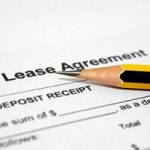The short answer is no, you don’t always have to pay your rent, but the circumstances that allow you to make partial payments, or to stop paying altogether are very limited. In short, generally you need to pay your rent. You might win a case and get that rent returned or get something fixed, but until the court says otherwise, you probably have to pay your rent. Landlord/Tenant law can be very limiting to tenants in this regard.

1. The extermination of rats, mice, roaches, ants, wood-destroying organisms, and bedbugs.
2. Locks and keys.
3. The clean and safe condition of common areas.
4. Garbage removal and outside receptacles therefore.
5. Functioning facilities for heat during winter, running water, and hot water.
So a residential landlord in Florida is not even required by statutes to keep the A/C running in the middle of the summer. Hopefully, the lease agreement does. The statutes also allow the landlord to require the tenants to vacate the premises if required for extermination under #1 above for up to 4 days with only 7 days written notice. Additionally, the landlord is not required to pay damages and the amount of rent is not lowered for the time period.
So, if the landlord fails to follow any of the duties above, then can you withhold rent, or part of the rent? No, not quite yet. Section 83.56, Florida Statutes, states that when the landlord materially fails to comply with Section 83.51(1) or the lease agreement, the tenant has to first, at least 7 days prior, deliver written notice to the landlord “specifying the noncompliance and indicating the intention of the tenant to terminate the rental agreement.”
Even if you bring an action for civil damages, the court may require the rent payments to be held in a separate account (see Section 83.49, Florida Statues), but generally payments will still be required. Ultimately, you may be able to get out of the lease or you may be able to get at least some of your rent back, but if you want to stay in your home, you are likely going to be required to pay rent.

